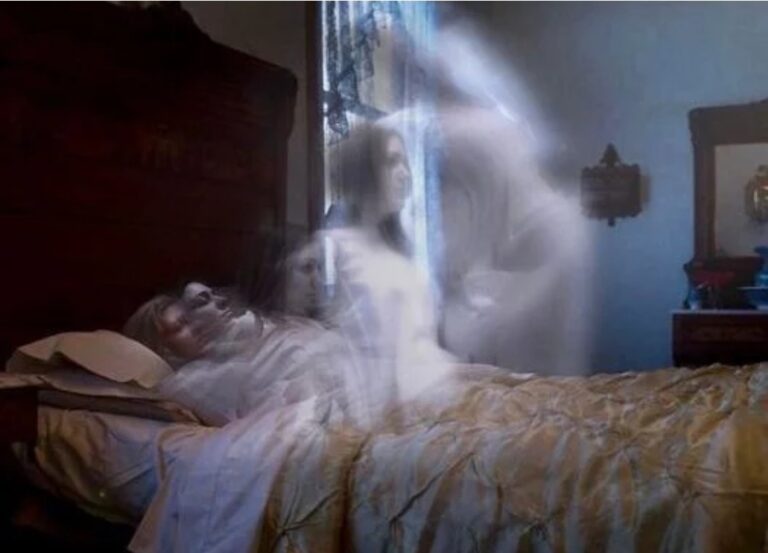Understanding Dreams of Deceased Loved Ones: Psychology and Meaning

The Universal Experience of Grief and Dreams
Losing someone close to us represents one of life’s most challenging experiences. The grieving process affects everyone differently, and many people find themselves experiencing vivid dreams featuring their departed loved ones. Understanding these dreams can provide valuable insights into the healing journey.
What Are Visitation Dreams?
Scientific Definition and Research
Dr. Patrick McNamara, associate professor of neurology and psychiatry at Boston University School of Medicine, has extensively studied what researchers call “visitation dreams.” These are dreams where deceased individuals appear to the dreamer, often seeming remarkably alive and present.
McNamara, who writes regularly for Psychology Today under the name Dream Catcher, defines these experiences as “dreams of the bereaved where the dead appear to the bereaved in dreams and look to be very much alive.”
Personal Experience and Professional Insight
The 67-year-old neuroscientist shares his own experience with visitation dreams following his parents’ deaths. Despite his scientific skepticism, McNamara found these dreams profoundly convincing, writing: “Now if I, an individual who studied dreams with a skeptical cast of mind, could not shake the conviction that I had just communicated with my dead parents, how much stronger must be the conviction of someone with a less skeptical approach to dreams than me?”\

Scientific Research on Bereavement Dreams
2014 Hospice Care Study
A comprehensive study published in the American Journal of Hospice and Palliative Care examined the psychological impact of dreams involving deceased loved ones. The research concluded that “dreams of the deceased occur frequently, can be highly meaningful and further healing from a loss.”
Common Dream Themes Identified
The study identified several recurring patterns in bereavement dreams:
- Memory-based dreams featuring past experiences and shared moments
- Healing imagery showing the deceased free from illness or suffering
- Peaceful afterlife scenes where loved ones appear comfortable and at peace
- Communication experiences where messages are conveyed
- Illness-related memories processing difficult end-of-life experiences
2016 Canadian Research
Canadian researchers conducted a detailed analysis of 76 middle-aged individuals who had recently experienced significant losses, providing additional insights into how these dreams function in the grief process.

The Psychology Behind Grief Dreams
Different Grief Responses
People process loss through various emotional responses:
- Emotional expression through crying and open mourning
- Withdrawal and introspection as a coping mechanism
- Avoidance behaviors attempting to minimize painful thoughts
- Dream processing as a natural healing method
The Role of the Subconscious Mind
Our subconscious mind plays a crucial role in dream content, particularly during times of emotional stress. Dreams involving deceased loved ones often serve important psychological functions in the healing process.
Therapeutic Benefits of Visitation Dreams
Emotional Healing and Closure
Research suggests that dreams featuring departed loved ones can provide significant therapeutic benefits:
- Processing unresolved emotions related to the loss
- Providing comfort during difficult grieving periods
- Facilitating acceptance of the death
- Offering symbolic closure for unfinished business
Mental Health and Wellness
These dreams often contribute to overall mental health by:
- Reducing anxiety associated with loss
- Providing emotional support during vulnerable times
- Helping maintain connection to positive memories
- Supporting the natural grieving process
Understanding Dream Interpretation
Scientific vs. Spiritual Perspectives
While some interpret these dreams as actual communication with the deceased, scientists generally view them as the mind’s way of processing grief and trauma. Both perspectives can offer comfort and meaning to those experiencing loss.
Personal Meaning and Significance
The interpretation of these dreams remains highly personal. What matters most is how these experiences help individuals navigate their grief journey and find peace.
Practical Advice for Those Experiencing These Dreams
Embracing the Experience
- Allow yourself to feel whatever emotions arise from these dreams
- Journal about the experience to process your feelings
- Discuss with trusted friends or family members
- Consider professional counseling if grief becomes overwhelming
When to Seek Professional Support
If dreams or grief significantly impact daily functioning, mental health professionals can provide valuable guidance and support through the healing process.
Conclusion: Finding Comfort in Understanding
Dreams featuring deceased loved ones represent a normal part of the grieving process for many people. Whether viewed through a scientific or spiritual lens, these experiences often provide comfort, healing, and connection during one of life’s most challenging times.
Understanding the research behind these phenomena can help normalize the experience and provide reassurance that such dreams are both common and potentially beneficial for emotional healing.
If you’re struggling with grief or loss, consider reaching out to mental health professionals, grief counselors, or support groups in your area for additional resources and guidance.